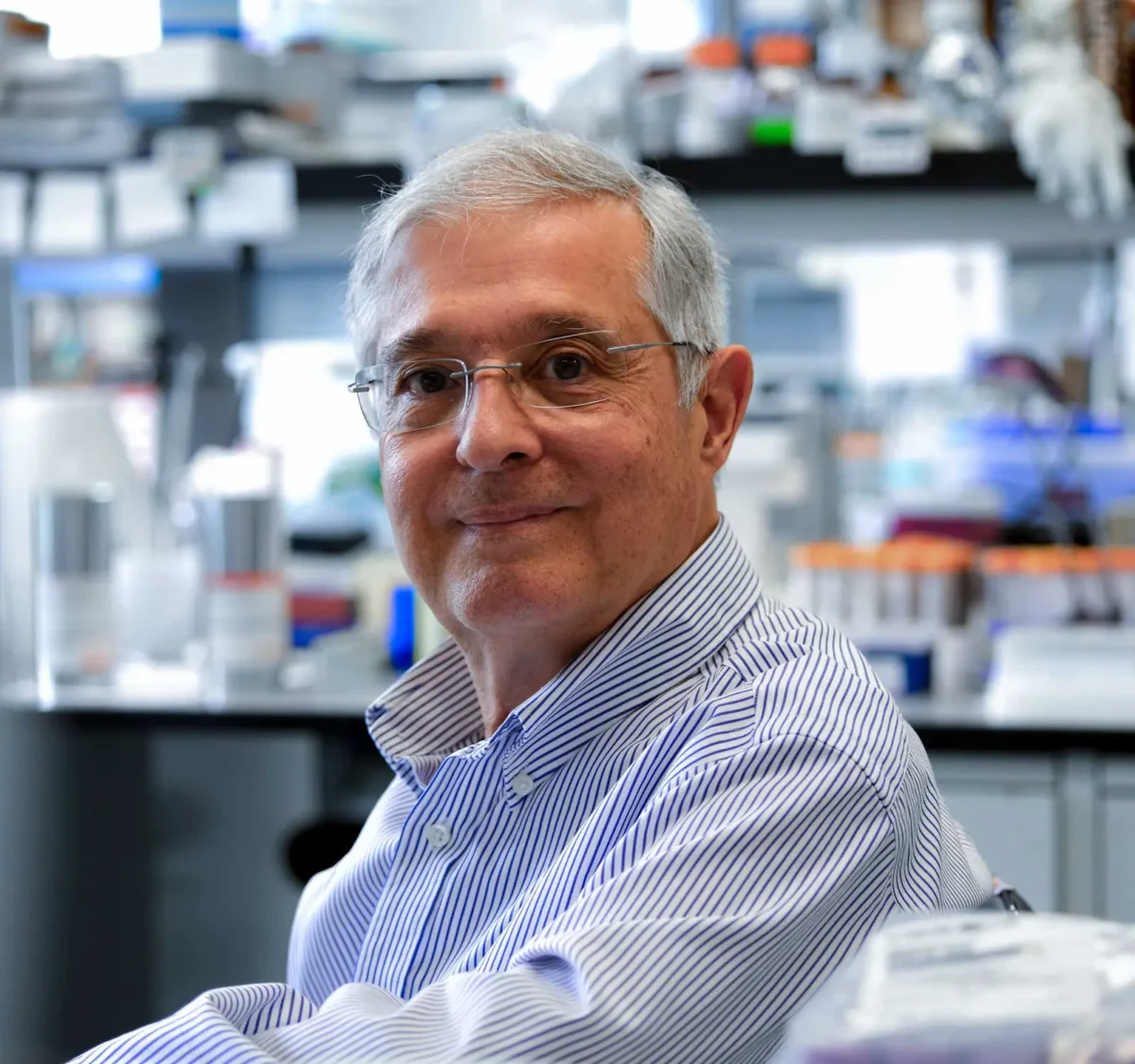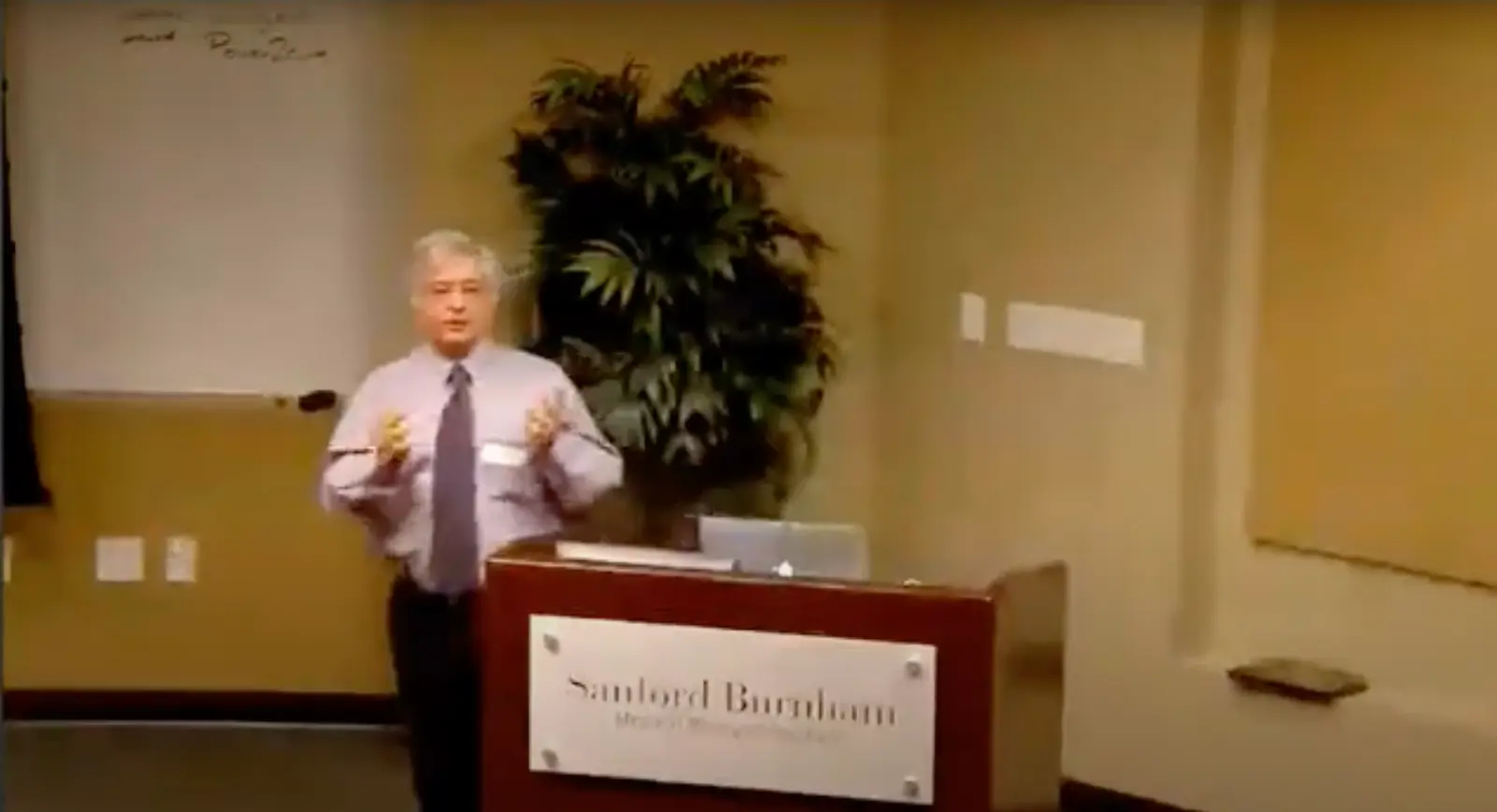After receiving his early training in clinical chemistry/biochemistry at the University of Buenos Aires, Argentina, Dr. Millán first joined the La Jolla Cancer Research Foundation (LJCRF) in 1977, the predecessor of Sanford Burnham Prebys, as a trainee in clinical enzymology. He completed his PhD studies in Medical Biochemistry at the University of Umeå, Sweden and after post-doctoral stints in Copenhagen and LJCRF he was appointed to the faculty at SBP in 1986. He served as Professor of Medical Genetics in the Department of Medical Biosciences at his alma mater, Umeå University, Sweden, from 1995-2000. He was appointed Sanford Investigator at the Sanford Children’s Health Research Center at Sanford Burnham Prebys in 2008.
Honors and Recognition
2018: ASBMR Lawrence G. Raisz Award for Pre-clinical Research.
2001: Gold Medal of the Royal Academy of Medicine and Surgery, Murcia, Spain
1992: Honorary title of AcadémicoCorresponsal at the Royal Academy of Medicine and Surgery, Murcia, Spain.
Other Affiliations
Member, Scientific Advisory Board, Soft Bones
Related Disease
Arthritis, Bone Mineralization Disorders, Cardiovascular Diseases, Colorectal Cancer, Crohn’s Disease (Colitis), Heart Disease, Inherited Disorders, Metabolic Syndrome, Peripheral Vascular Disease, Testicular Cancer
Phenomena or Processes
Cardiovascular Biology, Disease Therapies, Extracellular Matrix, Protein Structure-Function Relationships
Anatomical Systems and Sites
Cardiovascular System, Musculoskeletal System, Vasculature
Research Models
Mouse
The Millán laboratory works on understanding the mechanisms that control normal skeletal and dental mineralization and elucidating the pathophysiological abnormalities that lead to heritable soft bones conditions such as Hypophosphatasia (HPP) and to soft-tissue calcification, including vascular calcification, that is a hallmark in patients affected by a variety of rare genetic diseases as well as in chronic kidney disease. Dr. Millán’s research has already contributed to the implementation of a novel therapy for HPP, a genetic disease caused by deficiency in tissue-nonspecific alkaline phosphatase (TNAP) function, that leads to accumulation in the extracellular space of inorganic pyrophosphate (PPi), a potent inhibitor of mineralization. HPP is characterized by defective mineralization of bones (rickets or osteomalacia), and teeth that display a lack of acellular cementum, hypomineralized dentin and enamel, and periodontal defects. Dr. Millán’s team has demonstrated the effectiveness of enzyme replacement therapy using mineral-targeted recombinant TNAP (asfotase alfa) to prevent the skeletal and dental defects in the TNAP knockout mouse model of infantile HPP. This therapy was approved in 2015 for the treatment of patients with pediatric-onset HPP.
Current efforts, in collaboration with Professor Miyake’s group in Japan (https://www.nms-gt.org/en/members), focus on developing gene therapy as an alternative approach to treat HPP. Dr. Millán’s group has also identified key pathophysiological changes that lead to calcification of the arteries in animal models of generalized arterial calcification of infancy, pseudoxanthoma elasticum and related genetic diseases as well as in animal models of chronic kidney disease. His group, in collaboration with scientists at the Conrad Prebys Center for Chemical Genomics at Sanford Burnham Prebys, has developed proprietary compounds able to ameliorate the soft-tissue calcification in these conditions and clinical trials are now underway using these first-in-class small molecule inhibitors.
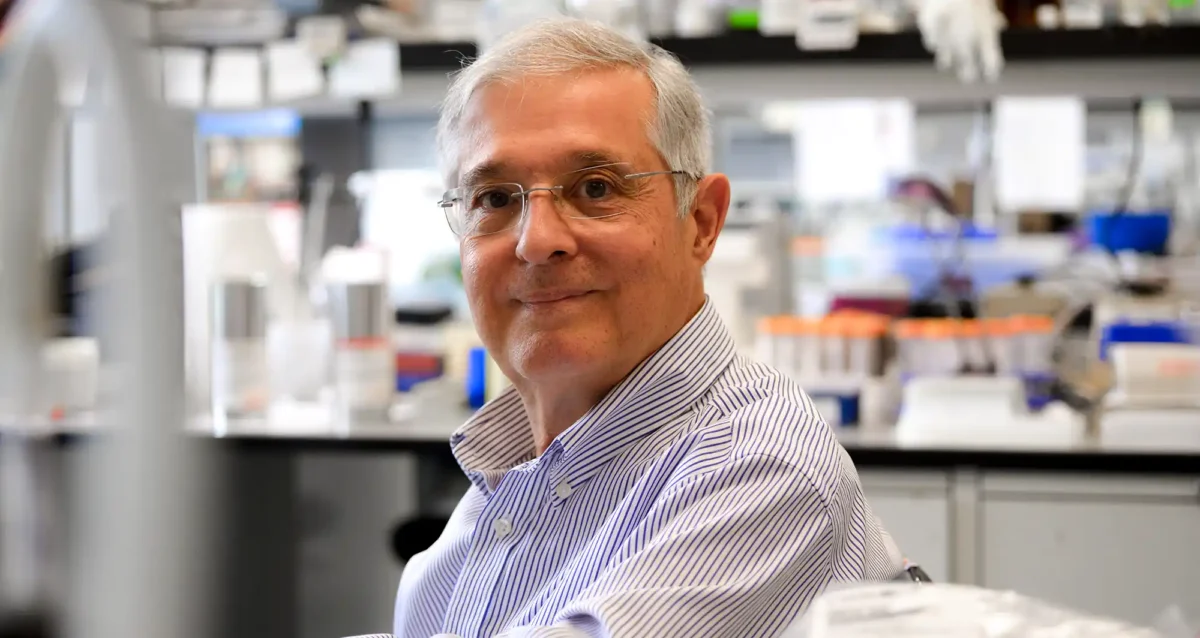 Feb 3, 2025
Feb 3, 2025Gene therapy may be “one shot stop” for rare bone disease
Feb 3, 2025New study shows a single shot may be able to treat a skeletal disease currently requiring nearly daily injections.
 Jul 21, 2023
Jul 21, 2023José Luis Millán joins international initiative to study calcification in aging
Jul 21, 2023José Luis Millán, PhD, has joined a five-year, $13 million program that will study misplaced calcification in the eyes and…
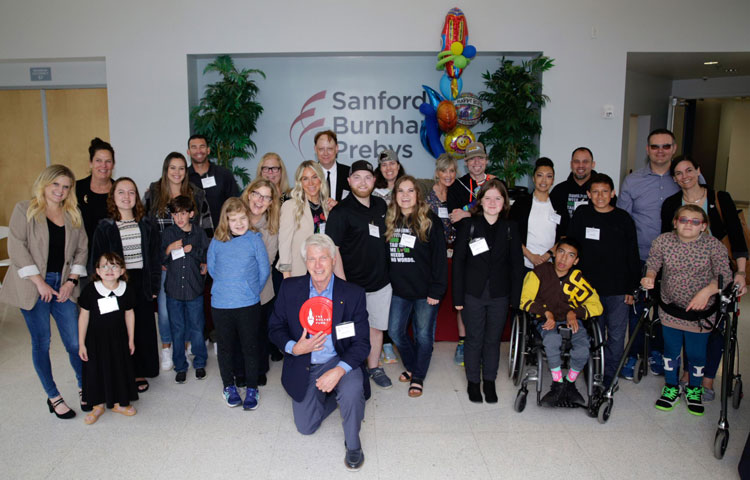 May 10, 2023
May 10, 2023Where science meets patients: Sanford Children’s Research Center hosts inaugural symposium
May 10, 2023The event celebrated 16 years of progress at the Center and connected scientists with the people most impacted by their work.
 Dec 19, 2022
Dec 19, 2022Sanford Burnham Prebys announces start of Phase 2 clinical trial of DS-1211 in individuals with PseudoXanthoma Elasticum
Dec 19, 2022San Diego Biotech Networks News
 Nov 30, 2022
Nov 30, 2022Sanford Burnham Prebys announces start of Phase 2 clinical trial of DS-1211 in individuals with pseudoxanthoma elasticum
Nov 30, 2022A Phase 2 clinical trial has started of DS-1211 in individuals with pseudoxanthoma elasticum (PXE), a rare multisystem genetic disease…
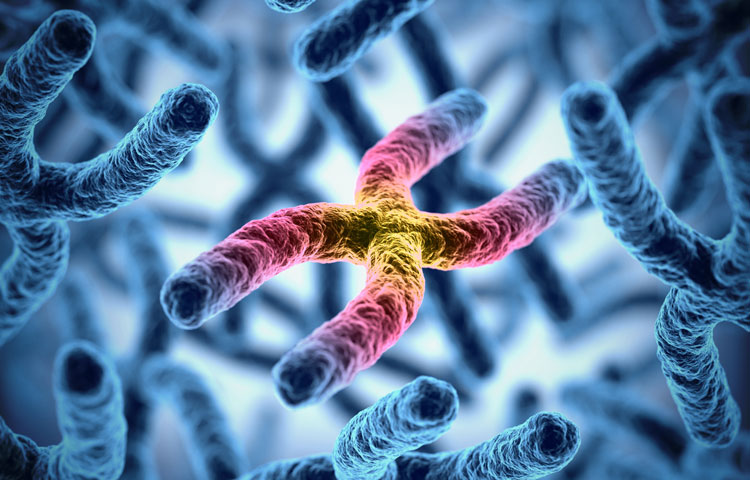 Jun 7, 2021
Jun 7, 2021Study supports gene therapy as a promising treatment for soft bone disease
Jun 7, 2021A single dose of AAV8-TNAP-D10 may be safe and effective for hypophosphatasia A preclinical study led by scientists at Sanford
